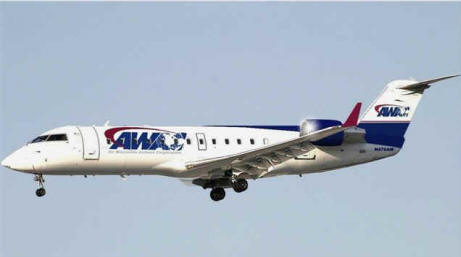Poor guy! Is this the right decision? Is the Court setting the standard too high for libel and defamation with actual malice? Are they giving the airlines too much power to trample on employees because of an act that was enacted out of fear after 9/11? It's not a unanimous vote, in fact it is far from it. Among the dissenting, Justice Scalia stated that he thought the statements by the supervisor were exaggerated and misleading, and that the court had gone too far trying to apply the standard to this case. However, he did agree with the legal standard they set. Is he right? Did the Court perhaps go too far by using this case to prove a point? I'm sure it wouldn't be the first time, but should the Supreme Court really be using cases to prove legal standards and set precedents even if the ruling is most likely too extreme for the case itself? Personally, I think it's a little unfair for those individuals, but do share what you think!

To read more:
Chicago Tribune article
LA Times article
Wall Street Journal article
New York Times article
ABA Journal article
P.S. some of these articles have some info on other interesting recent Supreme Court cases if you want to check those out.
3 comments:
As we established after listening to the New York Times v. Sullivan case in class, it’s incredibly difficult to define “actual malice.” Therefore, I am not going to speculate whether or not the comments directed at Mr. Hoeper could be labeled as such. While it would be devastating to learn that the comments were exaggerated or untrue, I think I stand by the Supreme Court’s ruling. As expressed by Justice Sotomayor, “Congress meant to give air carriers the ‘breathing space’ to report potential threats to security officials without fear of civil liability for a few inaptly chosen words.” Even though making an airline should still recognize the weight that comes with an accusation, I would rather that the accusation be made without any reservation or fear; it would be a risk for an airline to not report suspicious persons. But at the same time, I understand why it could be seen as risky to give airlines so much power. The ability to be practically immune to defamation cases gives airlines a considerable amount of leverage, all in the name of the War on Terror.
To further Annika's point, I also acknowledge that all too often the "War on Terror" creates the illusion of justifiable pretext for things that are unconstitutional. However, I agree with Sotomayor's point that a couple imprecise or carelessly selected words do not qualify one for such severe punishment.
It's difficult though. Reading the articles and hearing about the justices' verdict, it is easy for my take on what ought to be legal or not to be logical and more impartial. But when I think of Hoeper, the actual person this is going to affect, it becomes much harder to say that what is happening is 100% fair and correct.
Although I do feel bad for William Hoeper, I feel that, as Annika said, security has a higher priority. Airlines and other transportation companies should have the ability to report suspicious activity without any restriction. This would ensure higher security, and protect airlines. Of course, with great power comes great responsibility. Carelessness could result in unfair effects upon individuals such as Hoeper. Perhaps better calibration in airline security of what constitutes a threat would help airlines with this great power.
Post a Comment